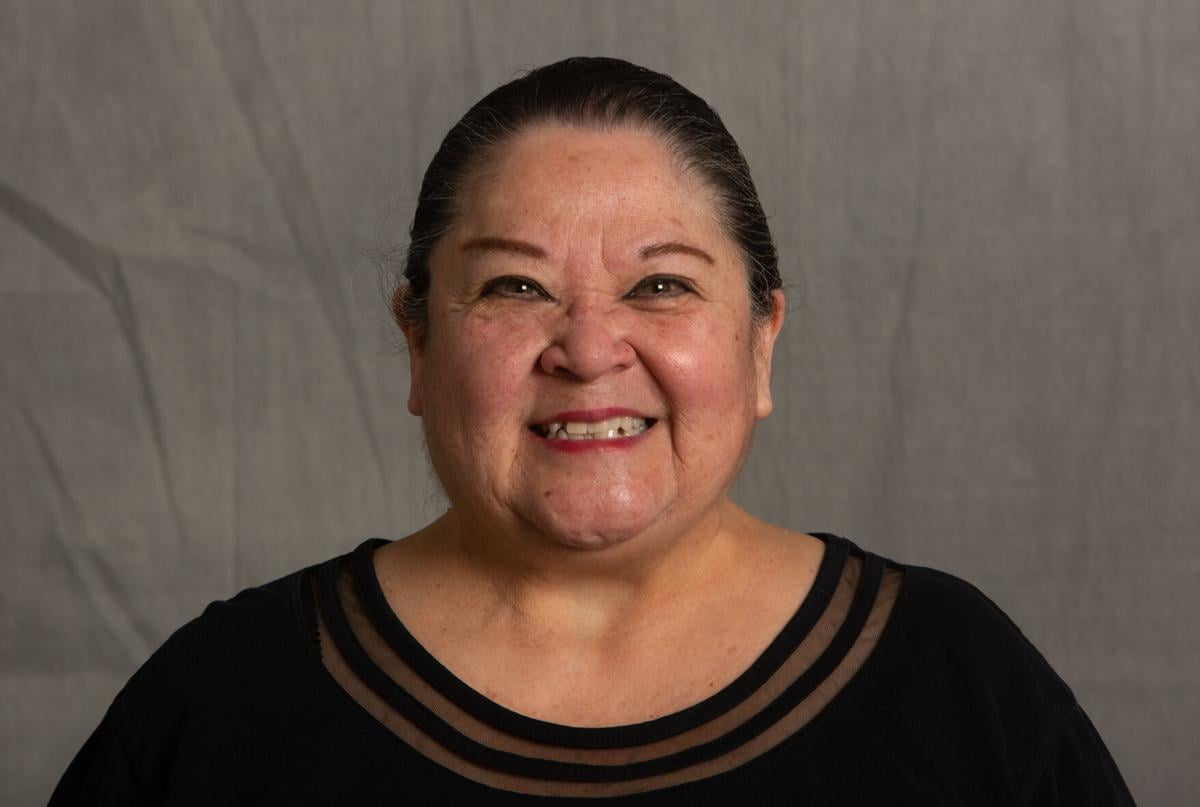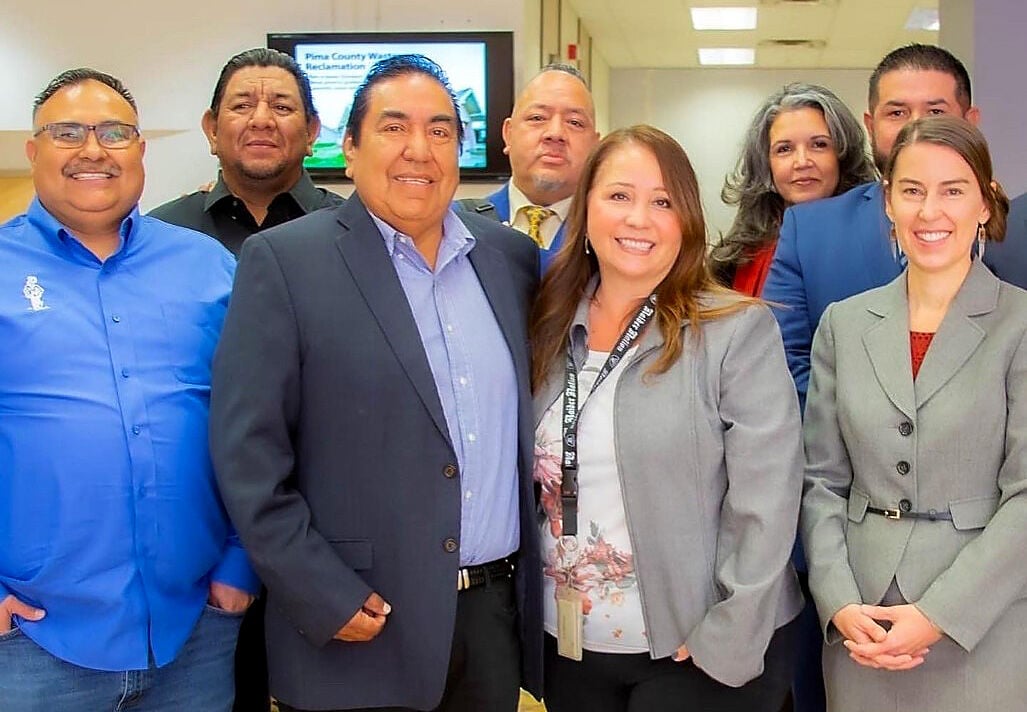A recent U.S. Supreme Court ruling giving states criminal jurisdiction on cases involving non-Indians committing violent acts on tribal members on reservations led to a recent landmark agreement between the Pima County Attorney’s Office and the Pascua Yaqui Tribe.
The five-year intergovernmental agreement approved Nov. 15 by the county Board of Supervisors and the tribe clarifies uncertainty regarding jurisdiction and the handling and prosecution of the cases in either tribal, state or federal courts, said Alfred Urbina, attorney general of the Pascua Yaqui Tribe.
This agreement stems from a Supreme Court ruling in June in Oklahoma vs. Castro-Huerta, an undocumented Mexican national who was sentenced to 35 years in prison for abusing his developmentally-disabled stepdaughter, a member of the Cherokee Nation, on tribal land. The case was tried in state court and Castro-Huerta appealed, saying the federal government should have tried the case because the state did not have jurisdiction.
The Supreme Court ruled 5-4 that the state has jurisdiction over its territory, including tribal lands, which rescinds 200 years of precedent whereby the federal government had jurisdiction, including cases regarding non-Indians committing crimes against Native Americans on reservations.
Congress may develop a law to clarify the Supreme Court ruling but it may not happen until 2023 or it may take years. In the meantime, jurisdictional issues need to be worked out, said Urbina. He said in Arizona, reservation boundaries are well established, and the jurisdictional process has worked well for decades. He said cases are tried in tribal court or federal court, depending on the cases.
Urbina said the Supreme Court ruling “has added confusion and a layer of uncertainty. So the intergovernmental agreement between the county attorney’s office and the Pascua Yaqui Tribe is intended to clarify any uncertainty regarding jurisdiction.” The agreement “just basically identifies who will be bringing these cases and who will be bringing them to what court,” explained Urbina.
Under the agreement, Pima County Attorney Laura Conover would swear in a Pascua Yaqui tribal prosecutor as a special deputy county attorney for criminal cases committed by non-Indians against tribal members on the reservation. These special deputy county attorneys can prosecute in state courts. Also, tribal prosecutors who will handle federal cases are sworn in as special U.S. assistant attorneys by a federal judge under a similar federal agreement between the U.S. Attorney’s Office and the Pascua Yaqui Tribe under the Tribal Law and Order Act of 2010.
Pascua Yaqui Tribal Court prosecutors are former attorneys for the Pima County Attorney’s Office. Urbina said when a crime occurs by a non-Indian on the reservation, tribal police respond and make the arrest. Depending on the situation, the arrest can be made by tribal police, who are state-certified officers, off the reservation if the suspect flees. Tribal prosecutors will determine whether cases are tried in tribal, justice, superior or federal courts. The county intergovernmental agreement “makes sure cases don’t fall through the cracks and there is no confusion between the state and the tribe, Urbina explained. The same goes for the federal agreement, he said.
Most cases regarding non-Indians committing crimes against tribal members on reservations will be heard in tribal or federal courts, said Urbina. But some cases may be heard in justice or superior courts because the suspect has a warrant, a restraining order or is on probation from a Pima County court, he said. But, it all depends on the facts of the case.
Peter S. Yucupicio, chairman of the Pascua Yaqui Tribe, stated in a document to the Pima County Board of Supervisors, that the partnership will help “increase coordination and communication among state, tribal, federal and local law enforcement agencies” which in turn will help “decrease the prevalence of violent crime, combat sexual and domestic violence against American Indian men and women, and help combat Missing and Murdered Indigenous Persons” in Indian Country by non-Indians.
Conover said at the Nov. 15 Board of Supervisors meeting: “We prosecute cases where Pascua Yaqui tribal members might be victims of violent crime, and by having a tribal prosecutor co-try a case, we can so better serve the victim while also providing greater transparency and accountability for how we serve tribal citizens.” Recognizing the possible broader effect of the Supreme Court ruling in Oklahoma vs. Castro-Huerta, Conover and Baird Greene, chief deputy county attorney, met with Pascua Yaqui leaders in July to propose an agreement. Earlier this month, Conover said she proposed a similar agreement in a meeting with Tohono O’odham Nation leaders, and that agreement is expected to be signed in January.
“To be clear, I share the concerns that tribal leaders are expressing locally and nationally about the threat to tribal sovereignty that the Castro-Huerta decision could usher in,” said Conover. “But the Supreme Court decision did open the door for this agreement, allowing me to bring tribal prosecutors right into our agency to make sure we are serving Yaqui and O’odham victims to the best of our ability,” she said.
Urbina said “other tribes across the country and in Arizona will start working on their own agreements.” He said the agreement between the county and the Pascua Yaqui Tribe has been shared with some 10 tribes, and the agreement can be used as a template for tribes negotiating for similar resolutions with state authorities. Pascua Yaqui officials discussed the agreement with federal authorities at the 2022 White House Tribal Nations Summit on Nov. 30-Dec. 1 in Washington, D.C.
Jurisdictional issues in Arizona are not as problematic as they may be among reservations and cities and counties in other states, said Urbina. There might be officials on reservations that do not enjoy a good relationship with officials of counties and cities near tribal lands, he said.
“This intergovernmental agreement between the Pascua Yaqui Tribe and the county is a common sense fix,” Urbina said. “The tribe entered into this agreement with the county to have a say in these prosecutions. People living on the reservation understand there will be safety and justice, and the agreement won’t disrupt it. Officers with the Pascua Yaqui Police will continue to show up and investigate crimes on the reservation,” said Urbina.
Sampson Sinquah, 2022 World Hoop Dance Champion, performs at a celebration of the unveiling of a mural and grand opening of the Southwest Native Trading Post on Tucson’s south side. The Wild Medicine drummers — Sinquah’s father, Moontee, and brother, Scott — kept a steady beat and sang. Video by Carmen Duarte/Arizona Daily Star.
Arizona Daily Star reporter Carmen Duarte's top 5 stories of 2022
 |
We are sharing Arizona Daily Star reporters' and photographers' favorite work from 2022.
Tohono O'odham runners experience tradition, culture and spirituality.
For Star subscribers: Father Eusebio Francisco Kino, a Jesuit missionary, explorer and cartographer, founded 21 missions in the Pimería Alta – what is now Northern Sonora and Southern Arizona.
For Star subscribers: A young Tucson family is bringing a new coffee shop to South Tucson, where they have family roots, creating a community hub.
U.S. Reps. Raúl Grijalva and Ann Kirkpatrick requested the funds that were approved by the Appropriations Committee.
Christian Hirwa supervises case managers at Jewish Family & Children's Services of Southern Arizona's refugee resettlement programs.










